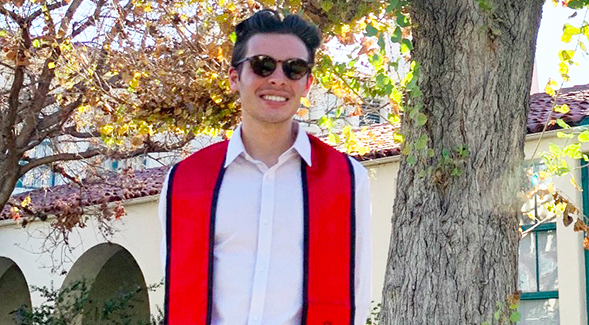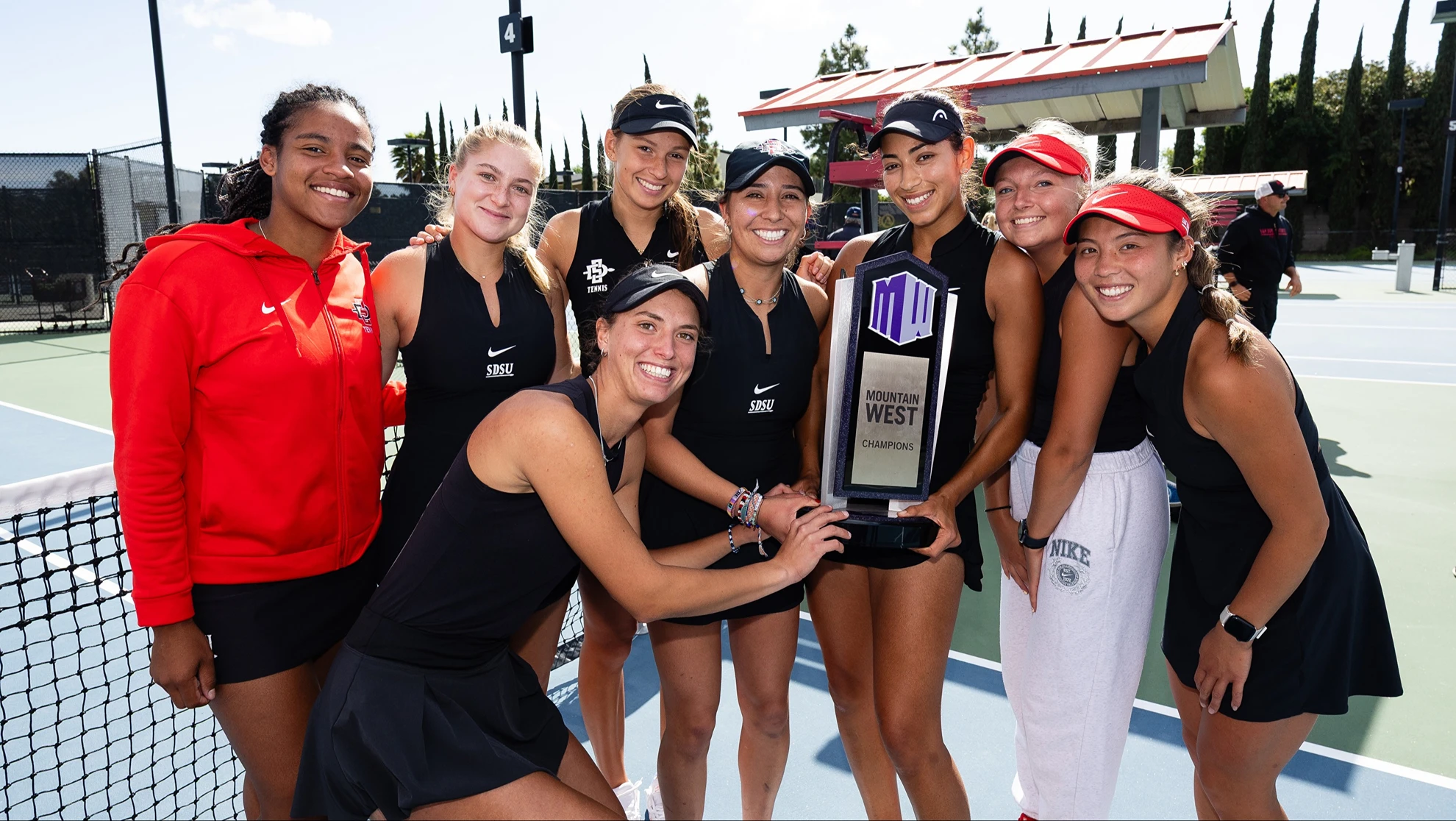#SDSUGrad: Jacob Wright
Jacob Wright will attend the Center for European Integration to pursue a masters degree in Advanced European and International Studies: European Integration and Global Studies.

Over the past year, the San Diego State University community has shown its true resilience. Graduates from the Class of 2021 are no exception. During this unprecedented time in human history, the university has prioritized providing students with important services like virtual academic support, emergency financial assistance and other support services. In particular, SDSU Career Services continues to offer resources for students, including the online career platform Handshake and expanded virtual programming and advising.
In this series, we highlight graduates as they prepare to embark on the next chapter of their lives, including those who have secured jobs and internships or are moving into advanced studies.
Name: Jacob Wright
Major: Political science major with a minor in digital and social media studies with an emphasis in public relations.
Hometown: San Diego
Can you describe a little bit about yourself and what led you to pursue political science as your area of study?
I have been interested in politics since a young age. I grew up watching C-SPAN documentaries on the Supreme Court and watched the British House of Commons debates. I interned for the California State Senate when I was 12, and I have had this obsessive, driven and hyper-focused type-A personality since then. I think my love of political science stems from multiple areas. However, to me, political science is practical and interesting because it provides a strong academic preparation for many different occupations and career paths because politics connects to a range of policies and issues that affect society. Everything is political and everything affected by policy. The roads we drive on, the air we breathe, the water we drink, it all is affected by policy.
When did you decide to pursue graduate studies and what did that process entail?
I decided to embark on the journey of graduate studies because I want to be able to master my political science skills and stand out in the workforce. However, the timing was not solidified until June or July of last year, because I was also applying for a Fulbright research grant and that would determine if I would go away and then pursue a masters after. Sadly, I did not receive the Fulbright so I decided to continue pursuing my master’s. The processes for master’s degrees are all relatively similar. The most time-consuming part of this process is just deciding on three or four non-negotiables in terms of what you want to get out of your master’s. Then find which programs meet those criteria. For me, I wanted it to be outside the U.S., no application fee, no examinations, and relatively inexpensive, but still a high-quality institution.
When did you receive your graduate program acceptance?
I applied to seven different institutions throughout Europe and received responses within two weeks. After careful consideration, I chose to attend the Centre International de Formation Européenne — or the Center for European Integration (CIFE). I will pursue a master’s degree in Advanced European and International Studies: European Integration and Global Studies, which will allow me to live in Berlin, Nice, and Rome while I complete it. The French state also recognizes my graduate program as a qualification as a policy officer in European and international organizations.
What advice do you have for fellow students, regardless of their field, looking to attend graduate school after graduation?
Just be true to yourself, and listen as much as one is able to other people whose opinions you respect and look up to but in the end, the “buck” stops with you. You cannot really worry too much by looking to the left and the right about what other people are doing. Find what works for you and stick to it. Put on a brave face and just go out there and get it done.
What is it that you are most looking forward to as you kickstart this next chapter?
The uncertainty of it all, especially living and working in new countries. I have only left the United States to work for the Spanish government back in 2019, and that is the entirety of the world in which I have seen thus far. Interacting with locals, trying new things, learning Italian, and some French and German here and there would be fun too so I can immerse myself with the local population.
How did SDSU prepare you for success not only at the university but also after graduation?
Professors here really care about you and your success. Not to mention that they want to teach you about applying course themes to the real world. It was something that I was not expecting. They want to give you opportunities if you seek them out. Internships, jobs, and to connect you with people they know! I was required multiple times to use LinkedIn and to interview people in my field of interest. In addition to that, going to office hours and making friends with professors was the best thing I could have done. SDSU also gave me the skills to network and give back to the community. That is who we are — SDSU really does educate San Diegans. We are the driving force of the local economy and it shows. We also have great professors — not only in political science but in the School of Journalism and Media Studies and other departments as well.
What experience at SDSU has changed your life the most?
It would most definitely be the friendships and the contacts that I have made here. Before I left community college, I was worried that SDSU was going to be this indifferent and cold-shouldered campus where no one cared about me, or what I wanted to do with my life. I found my actual experience to be quite different. I really appreciate the authenticity that most of my professors gave me in return. They truly cared about who I was and what I wanted to do. And for that, I am truly grateful.



